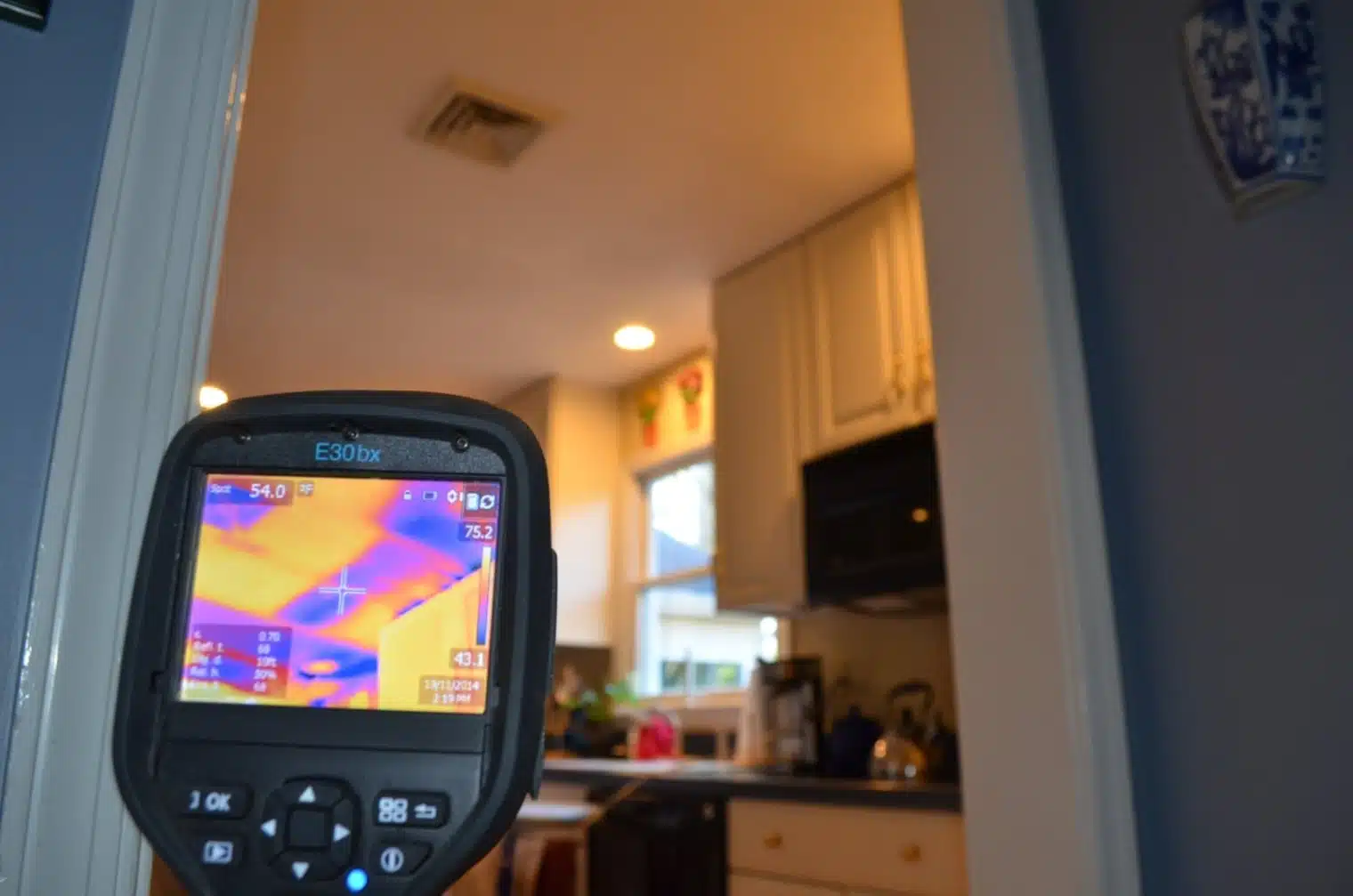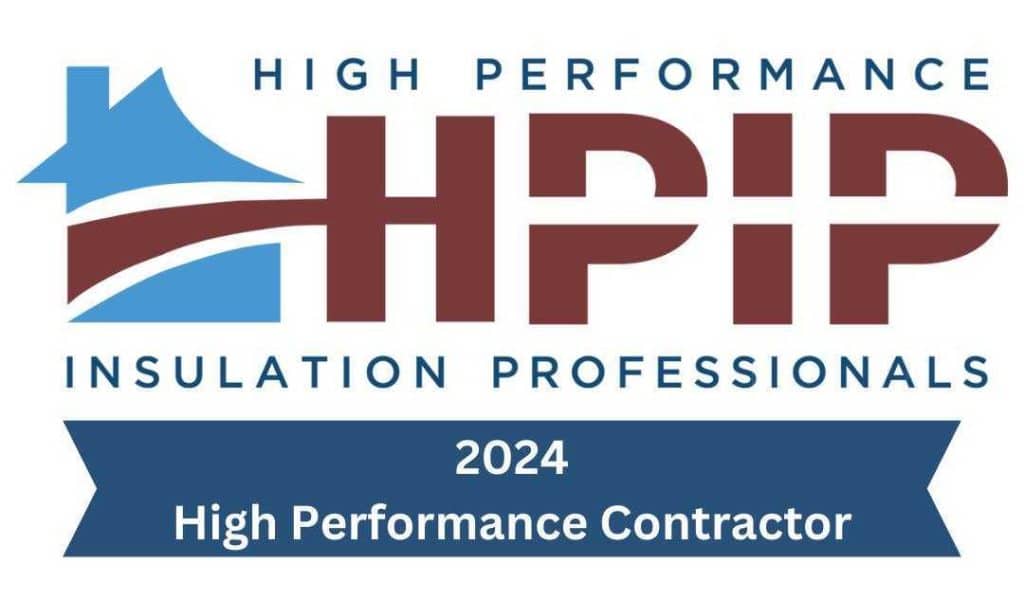Installing spray foam without conducting an energy audit risks covering up inefficiencies that could compromise the insulation’s performance. An energy audit pinpoints existing air leaks, insulation gaps, and moisture issues that should be corrected before sealing the structure with spray foam. In Alpharetta’s mixed-humid climate, this step becomes even more critical to ensure moisture balance, indoor air quality, and long-term insulation effectiveness.
Energy audits provide a diagnostic baseline. They allow for accurate assessment of heat loss patterns, ventilation issues, and HVAC inefficiencies. This ensures spray foam is applied where it’s most beneficial and not where it’s unnecessary or potentially problematic. The result is a well-informed insulation strategy that increases comfort and lowers utility costs.
What Energy Audits Reveal Before Spray Foam Installation
A professional audit uses tools like blower door tests, thermal imaging, and pressure diagnostics to uncover hidden inefficiencies. These findings directly influence spray foam planning.
Key Findings From Pre-Installation Energy Audits
| Diagnostic Tool | Purpose | Typical Issues Detected |
|---|---|---|
| Blower Door Test | Measures building envelope leakage | Gaps in attic hatches, rim joists, wall seams |
| Infrared Camera | Detects thermal irregularities | Missing insulation, cold spots, air leakage |
| Duct Leakage Testing | Evaluates HVAC system sealing | Leaky return ducts, uninsulated supply lines |
| Moisture Meters | Identifies damp building materials | Mold-prone areas, roof leaks, condensation risk |
Bonus Tip: Never apply spray foam over wet or damp surfaces. Moisture detection is a key reason energy audits should always come first.
Why This Matters in Alpharetta’s Climate
Alpharetta experiences hot summers and mild winters with frequent humidity spikes. Improper insulation in this environment can trap moisture and lead to microbial growth or structural damage. Energy audits help align insulation with the specific building envelope response to this regional climate.
Local Insight: Data from the Georgia Environmental Finance Authority (GEFA) shows buildings in the North Georgia area lose up to 30% of conditioned air through unsealed leaks (Source: GEFA Energy Efficiency Facts, 2024).
Technical Comparison: With vs Without Audit
| Installation Approach | Resulting Performance | Risk Level | Long-Term Efficiency |
|---|---|---|---|
| With Energy Audit | Targeted application, improved comfort | Low | High (10-20% utility savings) |
| Without Energy Audit | Blind application, uneven coverage | High | Low (unknown inefficiencies remain) |
Bonus Tip: Pairing an audit with spray foam can qualify for regional rebate programs or tax credits depending on verified efficiency gains.
Spray Foam Technical Specifications
| Parameter | Open-Cell Foam | Closed-Cell Foam |
|---|---|---|
| R-Value (per inch) | ~3.6 | ~6.5 |
| Air Barrier | Yes | Yes |
| Vapor Retarder | No | Yes |
| Water Resistance | Low | High |
| Expansion Rate | 100x | 30-40x |
| Application Areas | Interior walls, attics | Basements, crawl spaces, roofs |
Things to Consider Before Making a Decision
- Moisture Levels: Spray foam can trap moisture. An audit will identify areas at risk.
- Ventilation Strategy: Ensure air exchanges remain healthy post-installation.
- Code Compliance: Audits verify local energy codes before making upgrades.
- Material Choice: Decide between open-cell or closed-cell based on site-specific needs.
- Existing Damage: Structural rot or mold should be remediated first, identified during the audit.

We Offer Targeted Services to Support Smart Spray Foam Installation
Makeover Insulation provides specialized solutions aligned with insights from energy audits:
- Spray Foam Insulation: Creates a seamless air barrier that reduces energy loss and dampens sound.
- Air Sealing: Closes gaps and cracks in the building envelope for improved HVAC performance.
- Insulation Removal: Clears compromised insulation before new materials are added.
- Blown-In Insulation: Ideal for topping off after air sealing where foam isn’t applicable.
Common Questions Before Choosing Spray Foam With an Audit
How long does an energy audit take?
Most audits take 2-4 hours depending on home size.
Can I skip the audit if my home is new?
No. New builds can still have air leaks or insulation gaps.
Is spray foam safe in humid climates?
Yes, if installed on dry surfaces with proper moisture control.
Do audits add much to the overall project cost?
Usually under 10% of the project budget—and often offset by efficiency gains.
Get Expert Insulation Guidance
For homes in Alpharetta, skipping an energy audit before spray foam installation risks long-term issues. Accurate diagnostics ensure effective, efficient insulation that performs under local conditions.
Contact Makeover Insulation for service planning based on building science—not guesswork.
Phone: (470) 664-5300 Email: [email protected]
FAQ Section
How often should homes in Alpharetta undergo energy audits?
Every 5-7 years or before any major retrofit, HVAC change, or insulation upgrade.
What happens if spray foam is installed over damp wood?
The foam can seal in moisture, leading to rot, mold, and compromised insulation performance.
Is DIY spray foam viable?
Not recommended. Improper application can lead to poor air sealing, chemical exposure, and structural issues.
Are there rebates for energy audits in Georgia?
Yes. Programs through Georgia Power and federal credits under the Inflation Reduction Act may apply.
How do I know if open-cell or closed-cell foam is better for my attic?
An audit determines ventilation, moisture load, and air flow—all factors in material choice.




